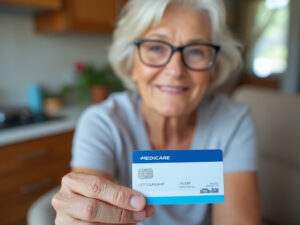Easy Living believes that dignity and independence are cornerstones of the client experience. During all of your interactions with the clients you serve, you should always find ways to help maintain their dignity and their independence. Let’s talk a little more about what that looks like together.
Dignity is defined as being worthy of honor and respect. Our clients are certainly worthy of honor and respect! You can preserve a client’s dignity throughout your interactions together by doing things like:
- Offering choice. Asking them how they take their coffee, which blouse they want to wear, or which route to take on your neighborhood walk empowers by giving them the opportunity to make decisions.
- Maintaining privacy during personal care. Unfortunately, it is easy for seniors to feel undignified during personal care because it is such a vulnerable experience. Ensure you are keeping private areas covered with a towel whenever possible and talking through what you will be doing before you do it.
- Eliminating elderspeak, which is sometimes considered the baby talk of senior care. Unless someone has asked that you call them Honey or Grandma, don’t do it. Instead, use their preferred name and speak to them like an adult.
- Developing a relationship with clients that is meaningful. Ask them about their history and pasts. Ask about their opinions on things. Show them that their life, opinions, and words matter to you.
You can probably think of lots of other ways that you can preserve dignity for your clients, and that is great! Put dignity at the forefront of your time together.
You should also work to maintain independence as much as possible. Unfortunately, this often requires some patience on your part. Sometimes, we can get a job done faster if we just do it ourselves. However, this is not always the best for our clients. If we do too much for them, they can develop low self-esteem and even lose certain skills.
Let’s talk through an example.
Evelyn has arthritis which makes buttoning her favorite blouses hard for her. If I’m the care partner for Evelyn, I would know this information because I looked at her care plan. I would also know that the care plan says the right amount of assistance for Evelyn for dressing is verbal cueing and encouragement. So, if it is taking Evelyn longer to button her blouse when she does it on her own, should I just do it for her?
No. Instead, I should give her that verbal cueing and encouragement. If she becomes frustrated, then I can ask for permission to help her out. But otherwise, buttoning her own blouse maintains Evelyn’s dignity and her independence. Buttoning her own blouse also gets Evelyn’s hand and finger joints moving, which can eliminate arthritis pain and stiffness.
Dignity and independence – find ways to maintain these for your clients every shift.






